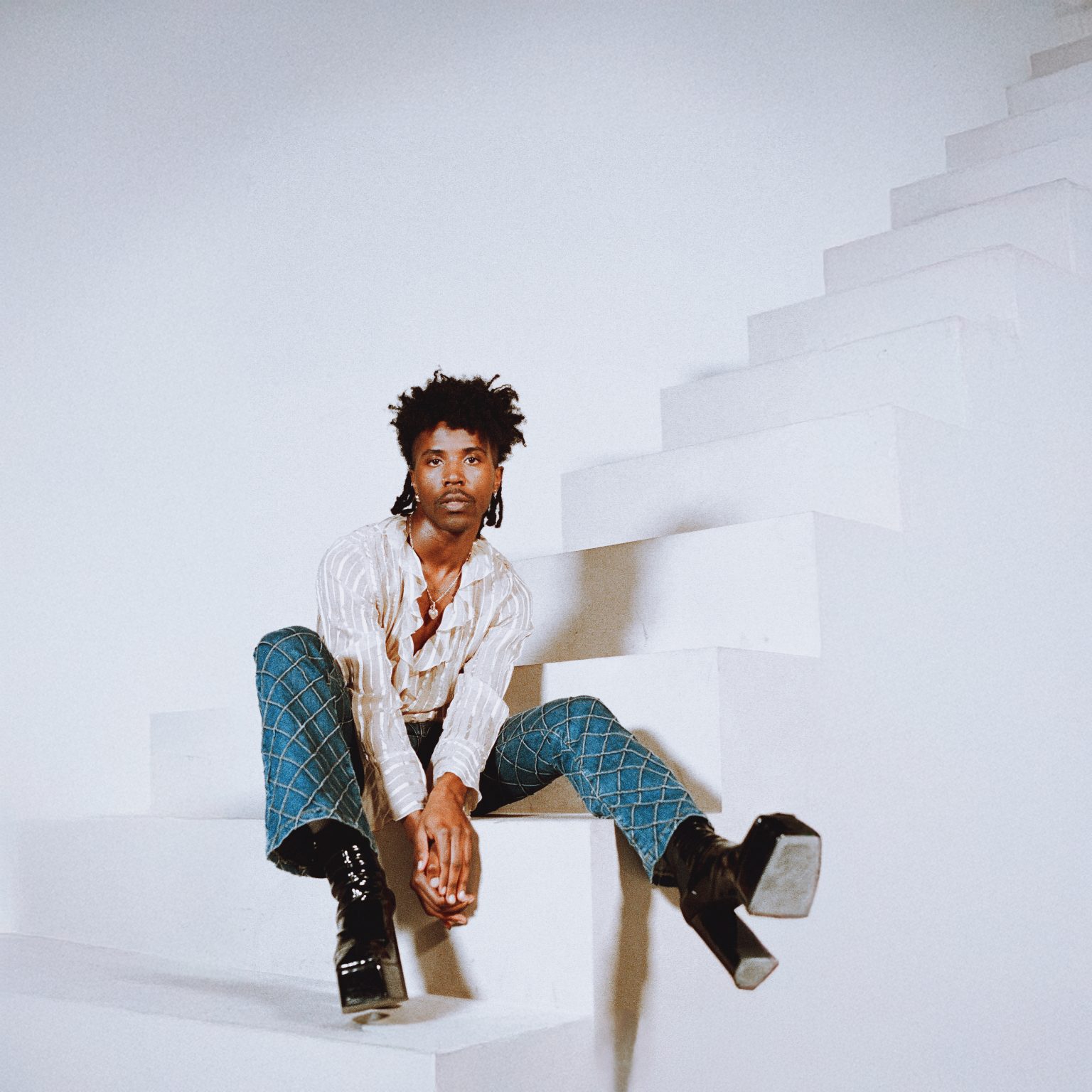DE’WAYNE: A Late Bloomer Finds His Sound and Voice
Rock artist DE’WAYNE’s third album, “june,” released in late July, marks a significant transformation in his musical journey. The Houston native, who has been creating music since his teenage years, describes this album as a true reawakening. “I’ve been making music since I was 14. It’s just getting good now. It was really terrible for a long time,” he admits with refreshing candor. Despite considering himself a “late bloomer,” DE’WAYNE expresses genuine happiness with his recent work and its reception. His mission has crystallized: “I just want to be a voice for this new Black generation.” This statement encapsulates his desire to carve out a space in rock music that honors Black musical traditions while pushing boundaries in contemporary ways.
To fulfill this ambitious vision, DE’WAYNE dedicated himself to studying the legends who came before him. He immersed himself in the music of James Brown, Bill Withers, Earth, Wind and Fire, and other icons of Black music. “I didn’t really know what the hell I was doing to be completely honest,” he reflects on his earlier work. For “june,” he and his producer were determined to create something with lasting impact. “I want to make something that is really good,” he emphasizes, describing his process as attending “music school” through the works of his heroes. This dedication to craft separates him from those who “just gotta make stuff and don’t really put a lot of care and love and work and failure” into their art. The result is an album centered around the timeless theme of love—exploring its highs and lows across carefully crafted songs that are “catchy and sticky and warm and textured and have something to say.”
DE’WAYNE’s evolution extends beyond music into his personal identity and fashion choices. “I think the thing that I’m doing to separate myself is just being DE’WAYNE,” he says with a laugh. This authenticity represents a breakthrough for him. The artist embraces all aspects of himself—including being “a bit more slutty,” as he playfully puts it. “I think it’s beautiful, though, because all those things exist inside of me.” His clothing choices have become integral to his creative process: “The clothes really do dictate a lot of my life… if I’m more clothed, maybe you’ll get a more reserved song.” This self-expression made waves at Warped Tour when he performed in a lace bodysuit that experienced a wardrobe malfunction. Though initially feeling insecure about the incident, he embraced the moment: “Well, now we’re here.” This attitude exemplifies his commitment to authentic self-expression regardless of circumstances.
The musical DNA of “june” reveals DE’WAYNE’s profound appreciation for Black artists who came before him. Prince, Lenny Kravitz, Marvin Gaye, and Bill Withers all influenced his approach, but James Brown holds special significance. “It’s just the energy that he had is very like church, and that’s where I come from,” he explains. What resonates most with DE’WAYNE is how these artists expressed vulnerability in their music: “I love the way they talked about the women in their lives, and the way they surrender… every time I hear them sing, it’s like they’re on their knees, begging.” This emotional openness inspired him to position “june” as a “godlike figure,” reflected in the album cover where he appears small beside her larger-than-life presence. Beyond influences, DE’WAYNE has formed a meaningful friendship with one of his heroes, Lenny Kravitz, after boldly reaching out through social media. “He’s my hero… it’s kind of weird to now think that we’re peers,” he says with genuine appreciation, noting they have collaborative projects in development.
DE’WAYNE recognizes the isolation that Black rock artists often face in the industry but envisions a more inclusive future. “I think there should be 30 of us. I think it should be 100 of us,” he states emphatically. “I think we’re just as good, if not better. I think we’re just as sexy, if not more sexy.” He sees his role as helping to create more opportunities for young Black artists following in his footsteps. This mission aligns with his pride in live performances, where his church-inspired energy truly shines. “When I get on stage, it’s kind of like a Holy Ghost,” he explains. “Growing up in church, the pastors used to be like the best performers. And I think I have a little bit of that in me.” This performance style will soon reach larger audiences as he joins Machine Gun Kelly’s Lost Americana arena tour in 2024—an opportunity he’s dreamed about for years.
With “june” establishing his distinctive voice and several major tours on the horizon, DE’WAYNE’s path forward is clear. “I just want to keep continuing to put love at the forefront and Black voices at the forefront,” he states as his five-year goal. This mission statement reflects an artist who has found his authentic voice after years of searching. By channeling influences from iconic Black musicians while bringing his own unique perspective, DE’WAYNE is creating music that honors tradition while feeling unmistakably contemporary. His journey from Houston teenager to boundary-pushing rock artist represents not just personal growth but an important contribution to expanding what rock music can be—and who gets to create it. As he prepares to “spread the gospel” to arena crowds, DE’WAYNE stands as an example of how embracing one’s full identity can transform not just a career, but potentially an entire genre.


